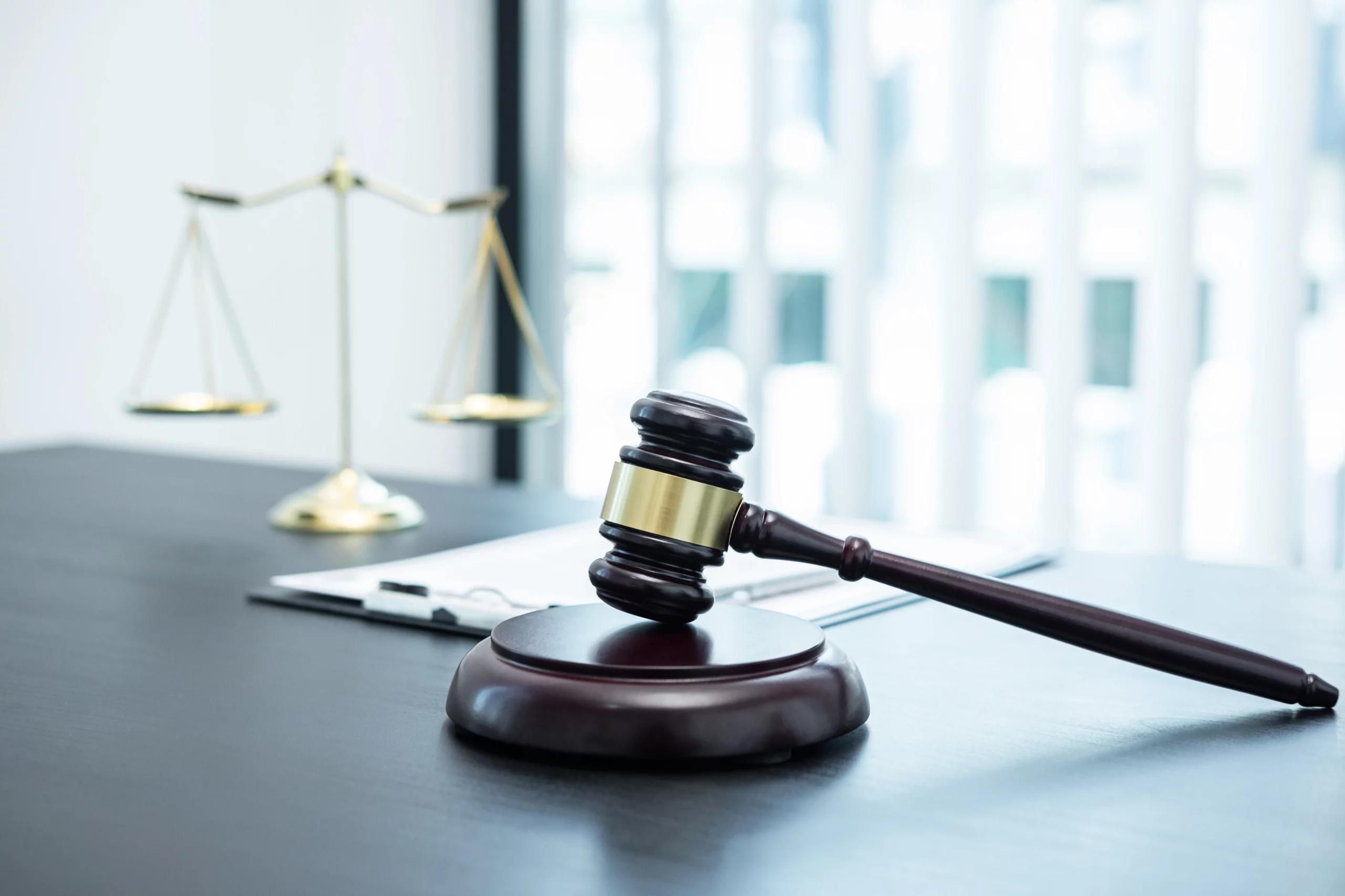COMPREHENSION AND BELIEF IN THE INJURY
Is there more severe damage than a brain injury? If a person’s intellect is intact, they may survive horrible bodily traumas and abnormalities and yet live a meaningful life.
Psychological harm cannot be entirely reversed. They manufacture prosthetic limbs but not artificial brains.
We can effectively defend our clients who have suffered major psychological traumas only if we accept this assumption – that damage to the mind is the most serious kind of harm. Psychic damage patients are often denied proper compensation for their claims.
A portion of the issue originates from insurance adjusters, defense lawyers, arbitrators, and courts failing to take the claims seriously. However, our experience indicates that most juries are ready to award substantial damages in situations involving psychological impairment when properly prepared and presented.
Unfortunately, unless plaintiff lawyers recognize the gravity of these claims, far too many of them will be resolved for less than their true worth. This post will discuss many strategies for achieving more gratifying outcomes for our mentally traumatized customers.
Free Consultation
In Person | Phone | Zoom
JURORS ARE NOT REQUIRED TO SEE WHAT THEY ARE CAPABLE OF BELIEVING
The fundamental challenge in proving psychological impairment is that a jury often cannot “see” the plaintiff’s suffering. Plaintiffs’ law firm worries that a jury may respond suspiciously if asked to award significant amounts of money for a “bizarre” injury that the plaintiff may be fabricating. While a jury will almost certainly have this mindset at the start of the trial, it may be overcome with adequate preparation and presentation of the material.
All preparation should begin with one fundamental principle: if a jury believes your client, it makes no difference whether they can imagine the plaintiff’s injuries or not.
As a result, it is critical to do all possible to ensure the plaintiff’s credibility while conducting a psychological damage case.
Explain to the client at the first interview that their case would test jurors’ willingness to accept that something as innocuous as an accident might result in severe psychological impairment. If a jury does not trust them, no matter how hard you try or how brilliantly expert witnesses testify, they will
lose their case. Insist on the client disclosing any previous psychological disorders and therapy. Explain to the client that having pre-existing psychological disorders is a plus, not a disadvantage. Reiterate at the plaintiff’s pre-deposition meeting that every lawsuit is a credibility fight, much more so in a psychological harm case.
The plaintiff’s law firm is critical in preserving the plaintiff’s credibility. Psychological damage lawsuits, like those involving medical misconduct, are “changing sands” situations. This means that the case’s concerns will evolve.
One of the most anticipated defense tactics will argue that the plaintiff’s psychiatric expert should be disbelieved because their judgments were based on inadequate or erroneous evidence. The defense attorney, defense investigator, and defense psychiatric examiner will all seek to establish evidence indicating that the plaintiff had significant
pre-existing issues or that some other stressor contributed to the plaintiff’s post-accident troubles. It is unavoidable that the defense will uncover evidence of pre-existing difficulties or problems caused by additional pressures.
Given this knowledge going in, the plaintiff’s attorney must take reasonable procedures to allow both the plaintiff and the plaintiff’s experts to amend their evidence and views if new material becomes available in the case. This may be accomplished in one of the following ways:
The plaintiff’s attorney must perform the same sort of inquiry on their client that the defense law firm does. All preceding medical, educational, and employment records must be requested and thoroughly examined. It must be highlighted to the plaintiff how critical it is for them to “come clean” about traumatic occurrences and psychiatric disorders in their lives.
Most importantly, a plaintiff’s law firm should virtually never request a treating or expert therapist report in critical instances. The best approach to ensure your expert’s credibility is to delay rendering an opinion on the record as long as feasible.
The obvious disadvantage of this approach is that the case will be nearly impossible to settle pre-litigation or at an early stage of litigation. The plaintiff will almost certainly receive a poor arbitration result; however, we have always felt that the substantial downside greatly outweighs the potential upside.
We only obtain psychological expert reports when the plaintiff has sustained a relatively minor psychological injury (for example, a three-month fear of driving with no other residuals) or when the defense attorney or adjustor assures us that the case has a good chance of settling for a significant sum of money without a report. Even in such cases, we are cautious about requesting reports because they often undermine the plaintiff’s and plaintiff’s expert’s credibility.
UNDERSTANDING THE EXPERT’S ROLE
In contrast to other types of lawsuits, the expert’s purpose in a psychological injury case is often not to “sell” the plaintiff’s harm. That is the job of the attorney. Additionally, it is not the expert’s responsibility to persuade the jury that the plaintiff has been hurt.
That is the plaintiff’s responsibility and the lay witnesses who knew the plaintiff before and during the accident. If these witnesses are reliable, the jury will conclude that the plaintiff is suffering from psychological distress.
It is the expert’s responsibility to present a plausible and rational explanation for why the plaintiff suffered psychological impairment due to the subject event. This is by far the most critical function a plaintiff’s expert will play in a case involving psychological harm.
Essentially, the psychological expert must devise a plausible process by which the subject’s trauma rendered the plaintiff’s previously intact psychological defensive systems ineffective.
The expert will explain that when the plaintiff’s defensive systems were overloaded, he or she got inundated with undesirable ideas and sustained the psychological harm from which he or she is currently suffering. Before the trauma, the plaintiff was susceptible, but the client developed a full-fledged mental illness after the trauma.
It is never sufficient for an expert to testify that the trauma caused the accident because the “plaintiff was like ‘A’ before the accident and is now like ‘B,’ implying that the trauma created the difficulties.” This is not going to sell. It will not dispel a juror’s fundamental mistrust that trauma, even a very small one, can result in a significant psychiatric breakdown.
Rather than that, the expert must ascertain the concealed weaknesses that rendered the plaintiff especially vulnerable to the subject’s trauma. Unless there is severe trauma, a jury will simply not accept that an otherwise healthy individual might suffer psychological impairment as a result of a single occurrence.
Jurors must maintain a perception of invulnerability. No jury wants to think that if they were involved in an accident, they would go insane. As a result, the expert for the plaintiff must demonstrate to the jury that the plaintiff is not like them.
The plaintiff had unique vulnerabilities that rendered him or her vulnerable to the trauma. Once a jury grasps this notion, he or she will approach the case with a lot more receptive attitude and will be much more inclined to ascribe your client’s troubles to the underlying accident.
Additionally, the plaintiff’s psychological expert must demonstrate to the jury that psychology has a scientific foundation like other branches of medicine. We spend around two hours in each psychological injury trial having the expert use analogies to effectively explain “psychology by
numbers” to the jurors. We are not afraid of ideas such as ego, superego, and id. Only when a jury has considered these notions would they have proper regard for psychology, believe the seriousness of the plaintiff’s difficulties, and be prepared to recognize that the subject’s trauma caused those problems.
Finally, the plaintiff’s expert may speak to the plaintiff’s losses and the difficulties associated with “healing” psychological disorders. This will tie into the prognostic testimony.
It is critical to remember that therapists do not make prognoses like other physicians do. When a therapist states that “the plaintiff will need two years of treatment,” what the therapist is stating is that “the patient will undoubtedly require two further years of therapy, at which point we will review to see how he or she is doing.”
After two years, the patient may very possibly need more treatment.” You must convey to your psychiatric expert that this is the plaintiff’s one day in court and that the prognosis must account for all possible future treatment requirements.
RESPONSES TO THE DEFENSES
There are three fundamental ways that psychological cases are argued. Defenses in a particular case are completely foreseeable, and you and your expert should be prepared for them from the start.
The defense may use one or all of the three techniques listed below.
- A claim will be made that the plaintiff’s post-traumatic issues are all the result of a pre- existing
- The defendant will assert that the plaintiff is faking
- While the defense will admit that the plaintiff has psychological disorders, it will assert that these result from a stressor unrelated to the subject’s
DEFENDING AGAINST PRE-EXISTING CONDITIONS.
The current trend in establishing a pre-existing condition defense is for the defense doctor to assert that the plaintiff has a long-standing personality problem that predates the subject event. The defense psychiatrist will conduct a thorough examination of the plaintiff’s background in an attempt to uncover evidence of this personality disorder.
If the personality disorder defense is properly understood, it should not hinder the plaintiff’s case.
To begin, an individual may develop a personality disorder or another mental illness resulting from the trauma, such as Post Traumatic Stress Disorder.
Second, even if the plaintiff has a pre-existing personality issue, the defense expert will have to admit that it may be significantly exacerbated by future stress. Indeed, individuals with personality problems are often more vulnerable to future shocks.
Third, just because someone had “issues” before the subject trauma does not guarantee they suffered from a real personality disorder. Before a plaintiff can be diagnosed with a personality disorder, he or she must be dysfunctional. If your client could work and have a somewhat normal social life before the accident, it is quite improbable that he or she had a personality issue.
CONFRONTING THE DEFENSE OF MALINGERING.
When the defense claims that the plaintiff is fabricating the injury, the most important weapon available to the plaintiff is psychological testing. Psychological testing, which psychologists often conduct with a doctorate in psychology rather than psychiatrists, may give objective proof of mental disease.
Additionally, the plaintiff’s expert may attest that each psychological assessment has an objective component. The expert seeks to ascertain the patient’s affect and establish if it is compatible with the patient’s background.
The plaintiff’s expert must show that he or she is not a naïve sort of person who believes whatever the plaintiff says. For this reason, psychological specialists who come off as cynical make far better witnesses.
Plaintiff’s expert should evaluate supporting documents such as medical and educational records to corroborate the plaintiff’s story. Additionally, the expert should examine others who knew the plaintiff before and during the trauma to elicit additional information about the plaintiff’s experience.
Addressing the Additional Stressor Defense
Almost often, the defense will argue that the plaintiff’s issues result from a stressor other than the subject’s trauma. Death, marital hardship, financial pressure, abortions, miscarriages, and employment troubles are all popular “other stresses.”
There are essentially two strategies for dealing with the second stressor defense. To begin, a plaintiff may bring a legal challenge. Second, a plaintiff can demonstrate the psychological flaws inherent in the defense’s “other stressor” hypothesis.
Colorado jury instructions are excellent for situations involving psychological harm. BAJI 3.76, the “legal cause” instruction, provides that “a legal cause of harm plays a significant role in causing the damage.” The focus must be on “a” significant aspect. The plaintiff is not required to establish that the subject’s trauma was the only cause of the harm, simply that it was a significant factor.
Following that, the plaintiff shall seek which are the directions for “concurring cause.” If the plaintiff successfully persuades the court to provide these directions, the plaintiff’s law firm might agree during an argument that other stresses contributed to the plaintiff’s troubles.
However, this does not absolve the defendant if he or she had a significant role in producing the plaintiff’s losses.
Regarding a more evidential assault on the other stressor defense, the plaintiff might cite many facts to prove that the subject’s trauma caused the plaintiff’s damage instead of the defense’s stated causes.
To begin, the plaintiff may establish via the testimony of an expert witness that there is a tight temporal link between the subject trauma and the emergence of symptoms.
Second, there is often a distinction between the “quality” of symptoms elicited by an event such as death and the sort of psychological harm sustained in the aftermath of a car accident. A death should elicit grief-related symptoms, but the subject car accident most likely elicited nightmares, dread of driving, and so on.
Third, the length of symptoms after a catastrophic trauma, such as a car accident or sexual abuse, is much longer than the duration of symptoms following a death. A death triggers
grief-like feelings that should subside after a few months. It is well established that the symptoms of post- traumatic stress disorder may endure a lifetime.
Warrior focuses on situations involving severe bodily and psychological injuries, as well as wrongful death. The company has handled several instances, including catastrophic damage, traumatic brain injury, elder abuse, sexual abuse and harassment, post-traumatic stress disorder, and psychotherapist abuse. For further information or to schedule a free online consultation.












